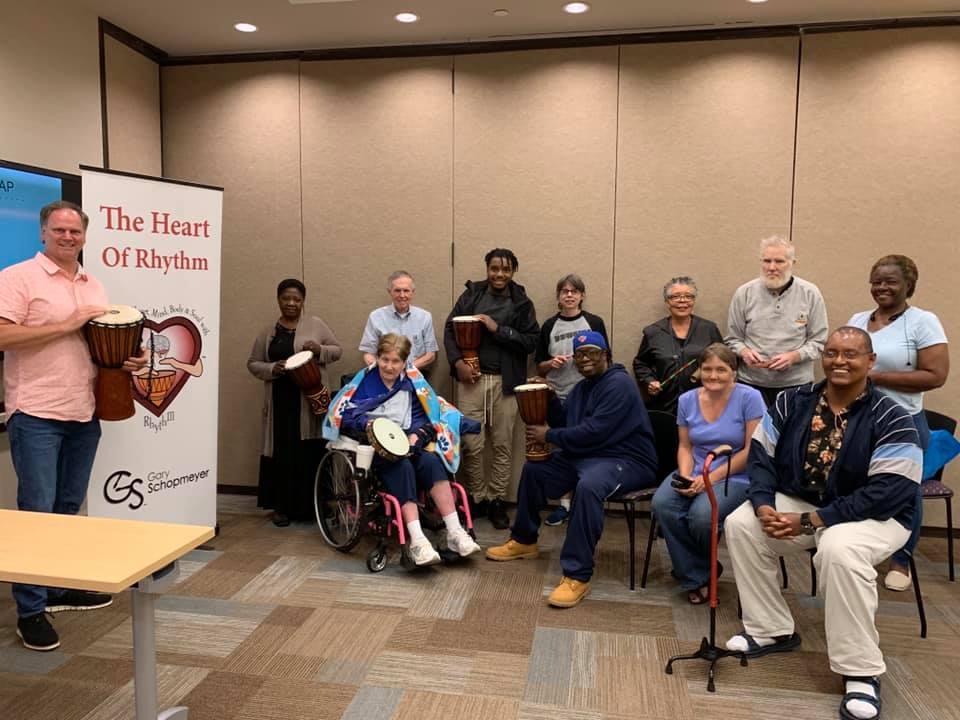A stroke is a life-altering event that can leave survivors and their families facing significant physical, emotional, and psychological challenges. The journey to recovery is often long and complex, requiring a multifaceted approach that includes medical care, physical rehabilitation, and psychological support. Among the many resources available to stroke survivors, stroke support groups stand out as a vital component in the recovery process.
1. Understanding Stroke and Its Impact
A stroke occurs when the blood supply to part of the brain is interrupted or reduced, depriving brain tissue of oxygen and nutrients. Within minutes, brain cells begin to die, leading to a range of potential disabilities, including paralysis, speech difficulties, memory loss, and emotional disturbances. The impact of a stroke varies widely depending on the location and severity of the event, but the aftermath is often overwhelming for both the survivor and their loved ones.
2. Emotional and Psychological Support
One of the most significant benefits of stroke support groups is the emotional and psychological support they provide. Stroke survivors often experience a wide range of emotions, including frustration, anger, fear, and depression. These feelings can be exacerbated by the challenges of adjusting to a new way of life and the uncertainty of recovery. Stroke support groups offer a safe space for survivors to express their feelings and share their experiences with others who understand what they are going through. Knowing that others have faced similar challenges and have found ways to cope can provide hope and motivation for continued recovery.
3. Peer Support and Shared Experiences
The power of peer support cannot be overstated. In stroke Support Group, survivors have the opportunity to connect with others who have experienced similar life events. This connection can be incredibly empowering, as it allows individuals to share their stories, learn from others, and gain insights into the recovery process. For many stroke survivors, hearing about the experiences of others who are further along in their recovery can be a source of inspiration and encouragement. It can also provide practical advice on how to handle specific challenges, such as dealing with physical limitations or navigating the healthcare system.
4. Reducing Feelings of Isolation
Stroke can be an isolating experience, particularly for those who are dealing with significant physical or cognitive impairments. The loss of independence and the need for assistance with daily activities can lead to feelings of helplessness and social withdrawal. Stroke support groups help combat these feelings by providing a sense of belonging and community. Additionally, support groups often organize social activities and outings, providing opportunities for survivors to engage with others and participate in enjoyable experiences outside of the home.
5. Education and Information Sharing
Donate To Veterans In Northern Virginia complex and confusing process, with many survivors and their families struggling to find the information they need to navigate their new reality. Stroke support groups often serve as a valuable resource for education and information sharing. Many groups invite healthcare professionals, such as doctors, physical therapists, and occupational therapists, to speak to the group and provide expert advice on various aspects of recovery.
6. Encouraging Active Participation in Recovery
Active participation in the recovery process is crucial for achieving the best possible outcomes after a stroke. Stroke support groups encourage survivors to take an active role in their recovery by setting goals, tracking progress, and celebrating achievements. This sense of agency and control can be empowering and can help survivors stay motivated and focused on their recovery. Support groups also provide opportunities for survivors to participate in activities that promote physical and cognitive rehabilitation.
7. Support for Caregivers and Families
The impact of a stroke extends beyond the survivor to their family and caregivers, who often face significant challenges in providing care and support. Stroke support groups recognize the important role that caregivers play in the recovery process and offer support and resources specifically for them. Caregivers can benefit from the shared experiences of others who are in similar situations, gaining insights into how to manage the demands of caregiving while also taking care of their own well-being.
8. Promoting Long-Term Recovery and Well-Being
Recovery from a stroke is often a long-term process that requires ongoing support and Donate To Veterans With a Brain Injury resources. Stroke support groups play a crucial role in promoting long-term recovery and well-being by providing continuous support, education, and social opportunities. For many survivors, participation in a support group becomes an essential part of their recovery journey, offering a consistent source of encouragement and connection. Over time, survivors who participate in support groups often develop lasting friendships and a strong sense of community, which can contribute to their overall quality of life.
9. Conclusion
For stroke survivors, the journey to recovery can be challenging, but with the support of a stroke support group, they can find the strength, hope, and resources they need to move forward and rebuild their lives.



